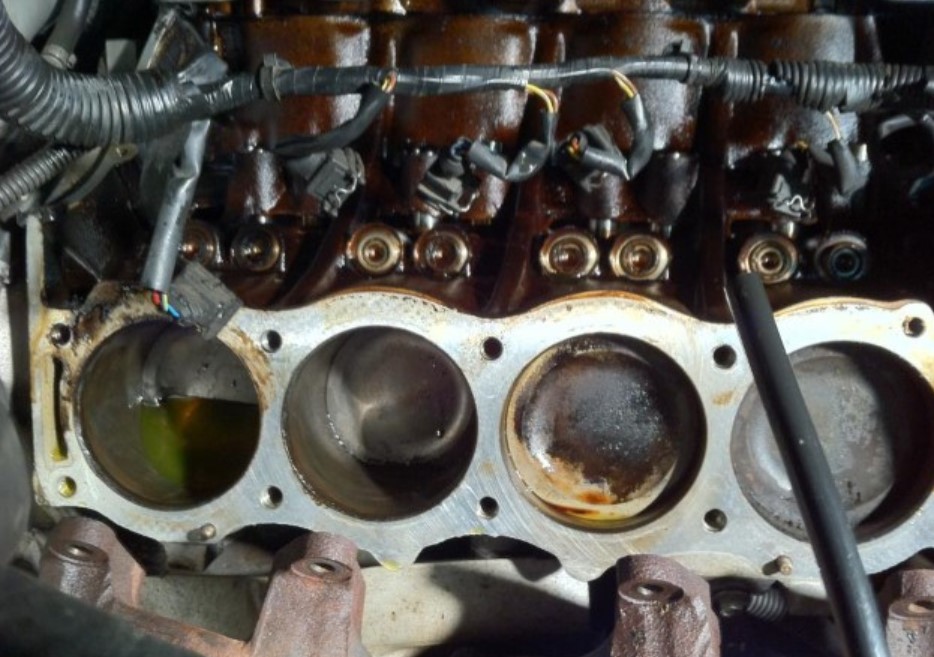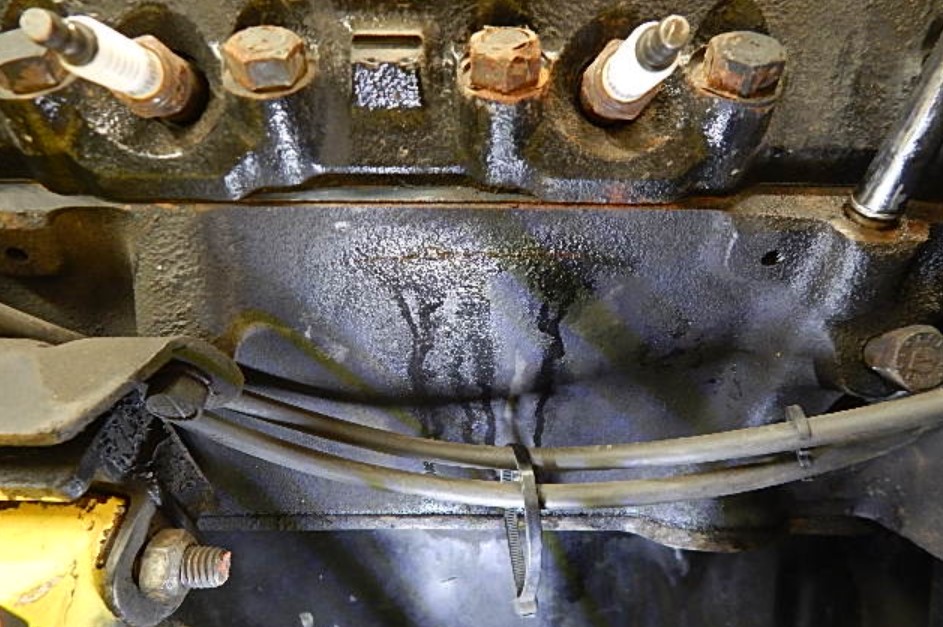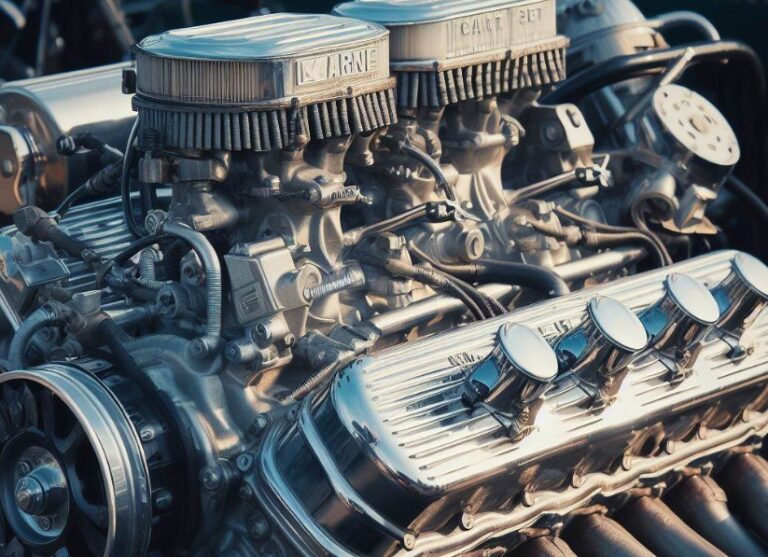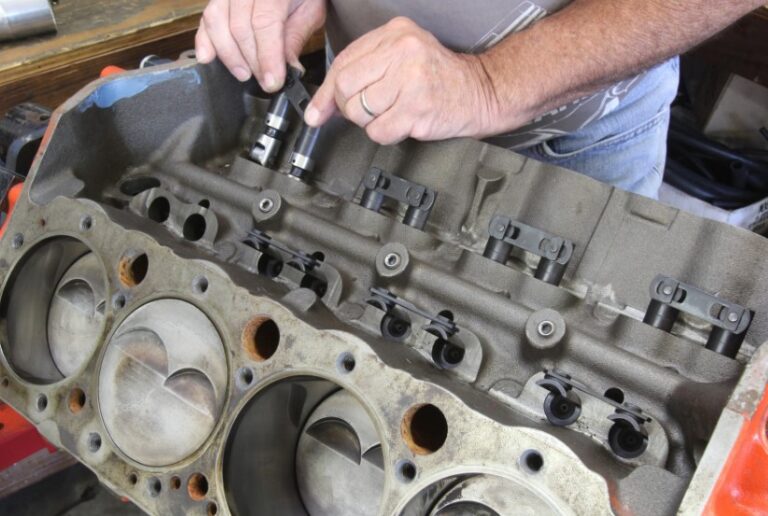How Cold To Crack Boat Engine Block? Quick Answer
When temperatures plummet, the worry about How Cold To Crack Boat Engine Block? becomes a pressing concern for boat owners. The engine block, the core part of a boat’s motor, is vulnerable to cracking in freezing conditions.
This article delves into the critical temperatures that pose a risk, effective preventive strategies, and ways to identify and address engine block cracks. Understanding these aspects is crucial to ensure the longevity and functionality of your boat’s engine.
Key Takeaways
- Critical Temperature: The temperature at which a boat engine block can crack varies, but it typically occurs around or below 32°F (0°C).
- Preventive Measures: Proper winterization, including using antifreeze and draining water from the engine, is crucial to prevent cracking.
- Signs of Damage: Look for leaks, abnormal engine noises, or performance issues as indicators of a possible crack.
- Repair and Costs: Repairing a cracked engine block is expensive and complex, emphasizing the importance of prevention.
- Insurance Coverage: Check if your insurance policy covers damage due to freezing.
How Cold To Crack Boat Engine Block?
The threshold for a boat engine block to crack typically lies around 32°F (0°C). However, factors such as engine type, material, and water content in the engine play a significant role in determining this critical temperature. When the water inside the engine freezes, it expands, exerting pressure on the engine block and potentially leading to cracks.

Factors Influencing Crack Threshold
- Engine Material: Aluminum blocks might crack at slightly higher temperatures compared to iron blocks.
- Water Content: Engines with higher water content are more susceptible to cracking.
- Engine Age and Condition: Older or poorly maintained engines may crack more easily.
Temperature Variability
- Geographical Differences: In colder regions, the risk increases as temperatures can fall well below the freezing point.
- Rapid Temperature Drops: Sudden cold snaps can be more dangerous than gradual decreases in temperature.
Preventive Measures
To prevent a boat engine block from cracking, winterization is key. This process involves several steps to protect the engine during cold months.
Winterization Process
- Draining Water: Remove all water from the engine to prevent freezing and expansion.
- Using Antifreeze: Fill the engine with marine-grade antifreeze to protect against freezing.
Regular Maintenance
- Inspections: Regularly check for any signs of wear and tear that could make the engine more susceptible to damage.
- Professional Servicing: Annual servicing by professionals ensures the engine is in optimal condition.
Signs of a Cracked Engine Block
Identifying a cracked engine block early is vital to mitigate further damage and expensive repairs.

Visual and Performance Indicators
- Leakage: Look for unexplained water or oil leaks.
- Abnormal Noises: Unusual sounds from the engine can indicate internal damage.
- Performance Issues: Difficulty in starting or irregular engine performance are warning signs.
Diagnostic Measures
- Pressure Testing: A pressure test can reveal hidden cracks.
- Professional Inspection: Regular inspections by experts can detect issues not visible to the untrained eye.
Repair and Costs
Repairing a cracked engine block is often costly and complicated.
Repair Options
- Welding: Some cracks can be welded, but this is not always feasible.
- Engine Replacement: In severe cases, replacing the entire engine might be the only option.
Cost Factors
- The extent of Damage: Minor cracks cost less to repair than major ones.
- Engine Type and Model: Some engines are more expensive to repair due to their design or parts availability.
Insurance Coverage
Understanding your insurance policy is crucial in case of a cracked engine block due to freezing.
Policy Details
- Coverage for Freeze Damage: Some policies cover freeze-related damage, while others do not.
- Deductibles and Limits: Be aware of your policy’s deductibles and coverage limits.
Claim Process
- Documentation: Keep detailed records and photos of the damage for insurance claims.
- Professional Assessment: An expert’s evaluation can support your insurance claim.
What Does It Take To Freeze & Crack An Engine Block?
The freezing and cracking of an engine block depend on several factors including temperature, engine material, and water content in the engine.
Typically, the critical temperature at which an engine block can freeze and crack is at or below 32°F (0°C). When water inside the engine turns to ice, it expands by about 9%, exerting significant pressure on the engine walls.

This expansion can create cracks in the engine block, especially in vulnerable areas or where the material has weakened over time.
The susceptibility to cracking also varies with the type of engine material; for instance, aluminum blocks might be more prone to damage at higher temperatures compared to iron blocks.
Additionally, engines with a higher water content are at greater risk, as the volume of expanding ice increases. Preventive maintenance, including proper winterization and regular checks, is crucial to prevent such damage.
How Cold Is Too Cold For A Boat Motor?
The threshold for “too cold” for a boat motor is typically around the freezing point of water, 32°F (0°C). However, this can vary based on the type of motor, its design, and the presence of any antifreeze solution in the system.

Inboard motors, which are more exposed to the elements than outboard motors, are particularly susceptible to freezing temperatures. The risk increases significantly in regions where temperatures can fall well below freezing.
Boat owners need to monitor local weather forecasts and prepare their boats accordingly. Even in milder climates, unexpected cold snaps can cause damage if the boat is not properly winterized.
Using appropriate antifreeze, ensuring proper insulation, and storing the boat in a warmer environment can help mitigate these risks.
How Do You Keep A Boat Engine Block From Freezing?
Preventing a boat engine block from freezing primarily involves effective winterization. This process includes several key steps:
- Draining Water: Completely drain all water from the engine, as any residual water can freeze and expand, causing damage.
- Using Antifreeze: Fill the engine with non-toxic, marine-grade antifreeze. This helps prevent any remaining water in the engine from freezing.
- Insulating the Engine: In colder climates, additional insulation can help keep the engine block above freezing temperatures.
- Regular Inspections: Throughout the winter, periodically check the boat and engine, especially if it’s stored in an unheated area.
- Professional Winterization: Consider hiring a professional to winterize the boat. They can ensure that all water is removed and that the engine is properly protected.
- Storing in a Controlled Environment: If possible, store the boat in a climate-controlled environment to minimize exposure to freezing temperatures.
By following these steps, boat owners can significantly reduce the risk of their engine block freezing and cracking during the colder months.
Conclusion
To conclude, How cold to crack boat engine block is a vital question for boat owners. Proactive measures like proper winterization and regular maintenance can significantly reduce the risk of engine block cracking.
Being aware of the signs of damage and understanding your insurance coverage are essential steps in protecting your investment. Remember, prevention is always better than cure when it comes to safeguarding your boat’s engine against cold weather damage.
Top FAQ’s
Should I winterize my boat engine if I live in a mild climate?
Yes, even in milder climates, it’s a good practice to winterize your boat engine. Unexpected cold snaps can occur, and being prepared can prevent damage. Winterization, including the use of antifreeze and draining water, is a preventative measure that can save costly repairs in the long run.
Can regular boat engine maintenance prevent cracking in cold weather?
Regular maintenance can significantly reduce the risk of engine block cracking. It helps in identifying and addressing any issues that could make the engine more vulnerable to cold weather, such as leaks or worn parts. Annual check-ups by marine mechanics are advisable.
How much does it cost to repair a cracked boat engine block?
The cost of repairing a cracked boat engine block can vary widely. Factors affecting the cost include the extent of the damage, the type of engine, and labor rates. Minor repairs might cost a few hundred dollars, while major repairs or engine replacements can run into thousands.
Can a boat engine block crack during short cold snaps?
Yes, a boat engine block can crack even during short periods of cold weather, especially if the temperature drops quickly to the freezing point or lower. Rapid temperature changes can be more damaging than gradual decreases, as they give less time for preventive measures to be taken.

Welcome to the exhilarating world of Matt Rex, a professional car racer turned renowned vehicle enthusiast. Immerse yourself in his captivating blog as he shares heart-pounding adventures, expert reviews, and valuable insights on cars, trucks, jets, and more. Fuel your passion for speed and discover the beauty of vehicles through Matt’s engaging stories and meticulous expertise. Join the ever-growing community of enthusiasts who find inspiration and expert advice in Matt Rex’s blog—a digital hub where the thrill of speed meets the pursuit of knowledge.






